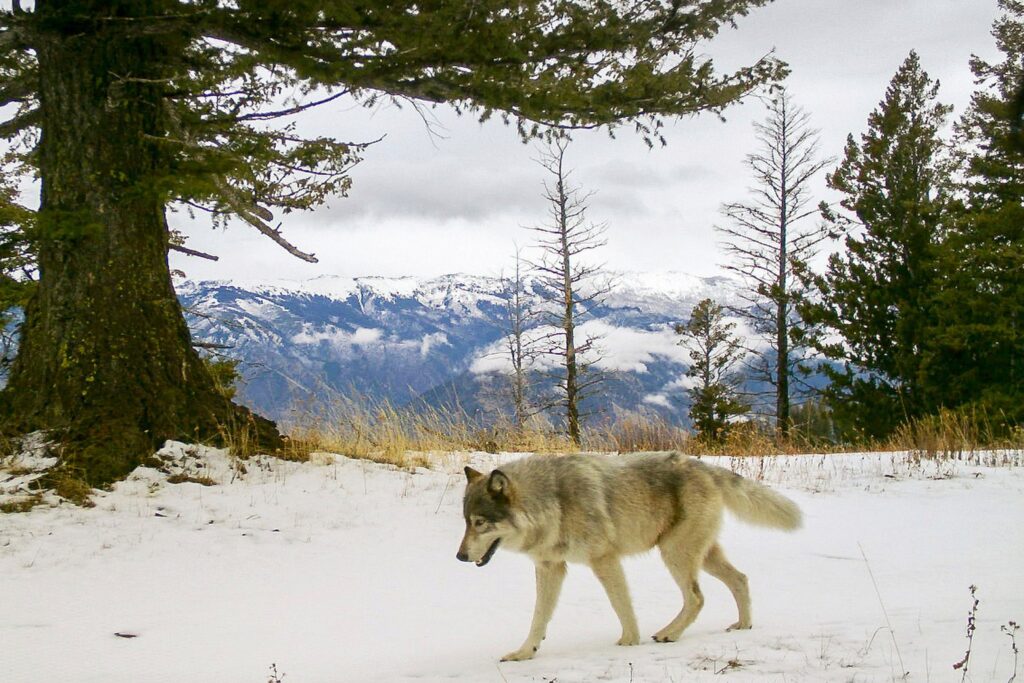Two Oregon Senate Republicans might sabotage a bipartisan plan to increase a state hotel tax by 1.25 percentage points to support wildlife protection.
In order to help fund species and habitat conservation projects at the Oregon Department of Fish and Wildlife that do not currently receive consistent, dedicated funding, House Bill 2977 would increase the transient lodging tax, which is currently 1.5% of the amount charged for staying in a hotel, short-term rentals like Airbnbs, and tent and RV camping sites, to 2.75%.
Additionally, some funds would go to the state’s wolf predation fund, some to the Oregon Department of Agriculture to stop and prevent invasive species, and some to the Oregon Department of Justice for anti-poaching enforcement.
With five Republicans voting with Democrats, the plan, which may raise an extra $42 million year, has already cleared the House by a vote of 36 to 15. Prior to a vote on the Senate floor, it also passed the Senate Committee on Rules.
However, the bill might be killed by a late change put up Thursday in the form of a minority report by Sen. Cedric Hayden, R-Fall Creek, and Senate Minority Leader Daniel Bonham, R-The Dalles.
The consequence of a minority report, which is a kind of counterproposal to a bill that a legislator opposes, is to block the bill process. It takes at least one day before the measure is read on the floor and up to five days in the Senate.
That delay usually has little significance. Any delays in the final days of the legislative session, however, might doom a bill without a vote because MPs desire to go sooner and the session must complete by Sunday.
House Bill 2977 is completely scrapped in Bonham and Hayden’s proposal, which instead suggests allocating $14 million from the state general fund to county animal sanctuaries, horse rescues, and primate rescues, as well as the state wolf predation fund, which compensates ranchers who lose livestock to wolves.
In an email, Hayden stated that he had no interest in raising taxes on Oregon’s hotel and dining establishments in order to finance what ought to be a joint general fund initiative. I don’t see any success indicators in the measure; it’s merely a scheme to funnel additional tax funds into an undefined fund so lawmakers can claim they took action to support animals.
Rep. Ken Helm, D-Beaverton, one of the bill’s primary and early backers, stated that Hayden and Bonham ought to have introduced a bill to finance those causes earlier in the session rather than in the final three days.
According to Helm, it demonstrates how inconsiderate the amendment is.
Helm claimed that the Oregon Restaurant & Lodging Association’s CEO’s misleading information, which the association’s lobbyist Bill Perry failed to rectify, is further impeding the bill’s passage.
Each of the six proposals that have been offered this session to raise or reroute a portion of the transient lodging tax has been rejected and advocated against by the group.
In his oral evidence on June 24, Jason Brandt, the CEO of the Restaurant & Lodging Association, asserted that Helm had not made an effort to meet with him or association members. In response, Helm sent the committee emails and summaries of the conversations he and his staff had with Perry and other members from 2020 to 2025. Perry, who attended the hearing where Brandt said Helm had not attempted to meet with the group, was urged by Helm to correct Brandt and correct the record.
Helm did not receive a response to his letter on Thursday asking Perry to amend the record. In a text message, Perry claimed to have sent Helm’s message to the Restaurant & Lodging Association’s executives.
State Rep. Cyrus Javadi, R-Tillamook, said he also objected to a conversation he had with Perry during the current session regarding a bill pertaining to the transient lodging tax. Javadi advocated for the passage of House Bill 3556, a bill he sponsored, which would have redirected some hotel tax funds to county emergency and public services, in his constituent newsletter. According to Javadi, Perry visited his office and claimed that his organization had sent him to beat the living daylights out of me. And I told him to go because that was not acceptable.
According to Javadi, the bill eventually failed to move out of committee in March, and Perry apologized the following day. Perry advised the Capital Chronicle to contact the Restaurant & Lodging Association with any questions in a text message sent Thursday night. He said, “I don’t know where the Javadi issue came from; earlier in the session, 3556 was dealt with.”
In 2024, the Oregon Restaurant & Lodging Association made a $5,000 donation to Javadi, one of 35 lawmakers. For the first time in a decade, they contributed $2,000 to Hayden’s campaign in November, and since 2018, they have contributed over $17,000 to Bonham’s campaigns. Over $12,600 of that total was donated between August and November of 2024, which is more than five times the average amount of money lawmakers received from the group in that year. Helm has not embezzled funds from the organization.
Currently, the Oregon Department of Fish and Wildlife must request funding from the general fund every two years for its habitat division and comprehensive wildlife strategy, which are not covered by the agency’s ability to use federal funds and hunting and fishing license fees. Approximately 90% of the agency’s budget is made up of federal grants and license fees.
A separate fund would be established under House Bill 2977 to support yearly contributions to the state’s Wildlife Action Plan, or Oregon conservation strategy, and Fish and Wildlife’s habitat division.
Over 200 species in the state that are most at risk of extinction or endangerment due to climate change and human pressure are the focus of the strategy. It highlights the main problems they face, the important ecosystems they rely on, and the resources to start assisting them.
At a hearing on the bill in February, Davia Palmeri, the agency’s federal policy director and strategic adviser, informed lawmakers that the Oregon Department of Fish and Wildlife anticipates adding 70 species to its list of greatest conservation need in the coming years, bringing the total number of species to over 300 for the first time.
Six suggestions to increase or reroute a portion of the accommodation tax, which generates approximately $40 million annually, were presented at the beginning of the 2025 legislative session.
The only one left is House Bill 2977. The others would have altered the percentage of temporary lodging tax revenue that counties can allocate to public and emergency services. They were put forth by a number of Republican lawmakers who represent Oregon Coast municipalities, including Javadi.
Currently, the hotel tax supports local and statewide tourism promotion initiatives run by the governor-appointed Oregon Tourism Commission, which consists of nine members and is also known as Travel Oregon. By law, marketing and statewide initiatives must receive at least 65% of the money.
Those measures were also opposed by the Oregon Restaurant & Lodging Association.
— Oregon Capital Chronicle’s Alex Baumhardt
Established in 2021, The Oregon Capital Chronicle is a nonprofit news outlet that specializes in Oregon politics, government, and policy.





More Stories
Republican senators aim to kill proposal to raise lodging tax for wildlife
Republican senators aim to kill proposal to raise lodging tax for wildlife
Republican senators aim to kill proposal to raise lodging tax for wildlife